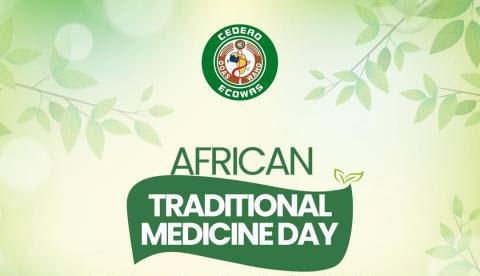
Message from the DG of WAHO on the Occasion of African Traditional Medicine Day, 31 August 2020
Fellow Citizens of the Economic Community of West African States (ECOWAS),
Today, the 31st of August 2020 is the 18th African Traditional Medicine Day. The celebration of this annual day offers African countries an opportunity to review the progress of implementation of the objective of institutionalizing Traditional Medicine into national health systems. The theme for this year’s celebration - "Two decades of African traditional medicine 2001-2020: what progress in countries" – emphasises the particular importance of today’s celebration as it coincides with the end of the strategy called the “Second Decade of African Traditional Medicine (2011-2020)” which was adopted by African Union Conference of Ministers of Health in April 2011 in Windhoek, Namibia.
Two decades later, we should critically reflect on how far we have gone in harnessing the potential contribution of Traditional Medicine to the health and well-being of our citizens and whether we are successfully promoting the safe and effective utilisation of Traditional Medicine through regulation, research and practice.
At WAHO, we are encouraged by the strides that ECOWAS Member States have made in this regard and we salute the Heads of State and Government of our Member States, the national Governments, Ministries of Health, and all stakeholders for their commitment and determination to promote the benefits of Traditional Medicine. We applaud the ongoing positive dialogue and collaboration across the region between orthodox and traditional medicine practitioners. However there is still concern about the lack of an effective regulatory regime for the practice of rational Traditional Medicine in order to address the proliferation of quacks of doubtful abilities and intentions that may seek to prey on the vulnerabilities of our citizens.
The ongoing COVID-19 pandemic has clearly illustrated the yearning of the population for local therapeutic solutions but also the dangers of unregulated practice with unsubstantiated claims of therapeutic efficacy. It is therefore incumbent on all health leaders and policy makers to accelerate the implementation of urgently needed legislation, regulation and policies to mainstream traditional medicine into health systems, to promote biomedical research into traditional medicines, and to improve the availability and affordability of traditional medicinal products whilst protecting the intellectual property rights of traditional medicine practitioners.
WAHO will continue to support this process through our various traditional medicine workstreams and activities. WAHO’s advocacy since 2007 has resulted in the internationally acclaimed collaboration between the Heads of Health Training Institutions and Medical and Dental Councils, and the Representatives of Centres of Excellence on Traditional Medicine in the region. We will continue to support the training of Traditional Medicine Practitioners in the production, and safe use of medicinal plants, the regular compilation of the West Africa Traditional Medicine Pharmacopoeia (an inventory of formulations of medicinal plants with proven efficacy), and the training of medical students in some aspects of Traditional Medicine.
These activities have generated positive results, but have also shown that promotion of African Traditional Medicine requires substantial investment in scientific research to generate credible evidence, particularly, in the use of medicinal plants for treating the many diseases that affect our people.
As we celebrate the 18th African Traditional Medicines Day today, WAHO looks forward to the continuing support of all the citizens of ECOWAS in this endeavour.
Long Live ECOWAS!
Long Live African Traditional Medicine!
